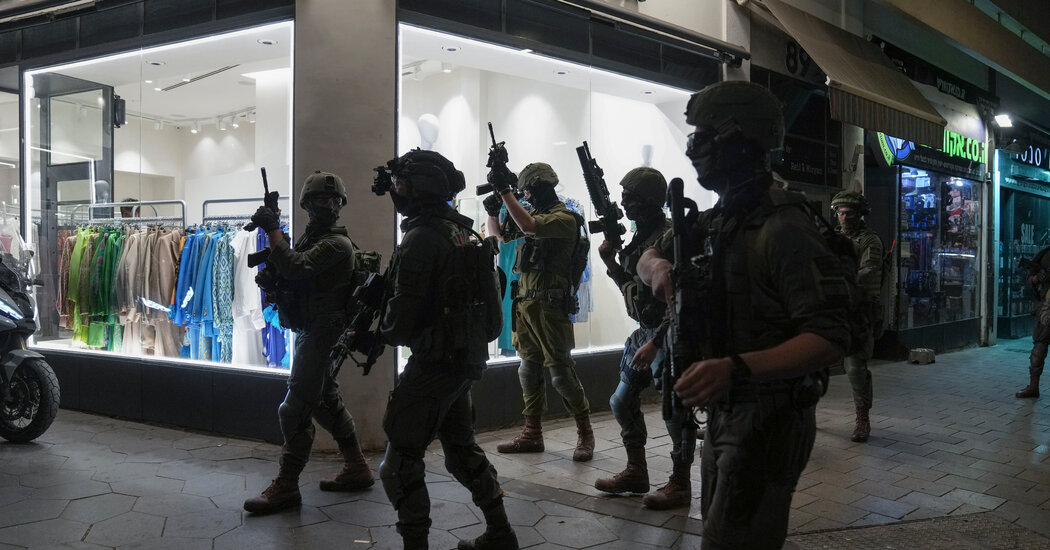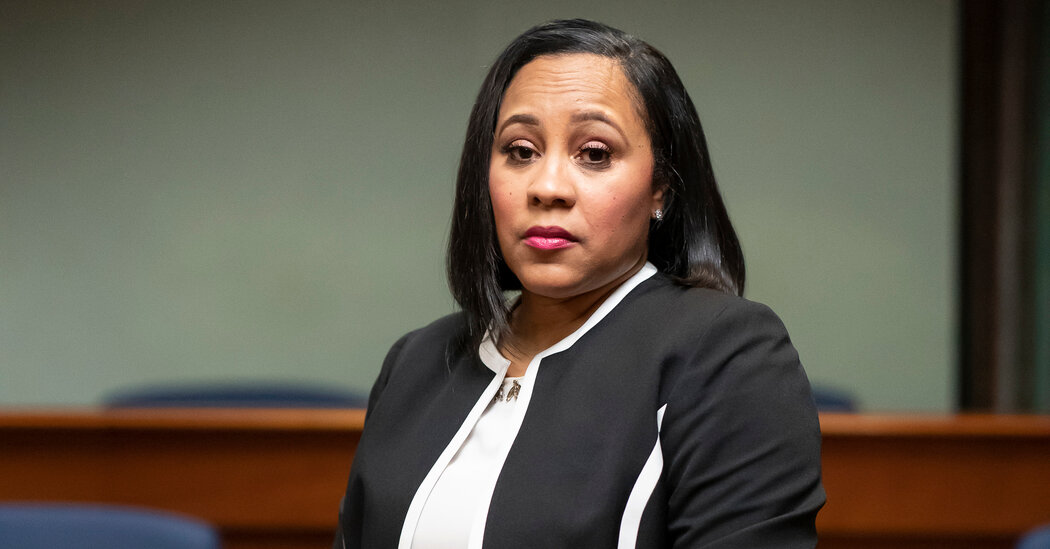
JERUSALEM — Israeli security forces on Friday morning shot dead a gunman who had fled the night before after killing two people and wounding 13 others outside a busy bar in central Tel Aviv. The gunman’s attack was the latest in the deadliest wave of terrorism in Israel since 2016.
The police said the shootings in Tel Aviv had occurred just after 9 on the last night of the Israeli workweek, outside a bar filled with people enjoying the start of the weekend. The gunman initially escaped, prompting security forces to embark on a nine-hour manhunt. They ordered residents to stay home as they combed the city in search of the gunman, effectively placing central Tel Aviv under a lockdown.
At 6 a.m. Friday, Israel’s internal security service, the Shin Bet, said police forces had killed the gunman in a shootout near a mosque in Jaffa, the southernmost district of the Tel Aviv municipality.
The shooting outside the bar was the fourth lethal attack in Israel in less than three weeks, and brought the total death toll since March 22 to 13. The assault heightened fears of an even more intense surge of violence over the next 10 days, when the rare convergence of Ramadan, Passover and Easter is expected to raise tensions further between Israelis and Palestinians.
Ten casualties were taken to Ichilov Hospital in Tel Aviv, two of whom later died and four of whom were in critical condition, the hospital said. Five others were either physically or psychologically hurt, the police said.
Video from the scene showed a man wearing dark clothing approaching a seating area outside Ilka Bar on Dizengoff Street, and then opening fire with what appeared to be a handgun before escaping.
The attack set off surreal chaos in the heart of Israel’s most cosmopolitan city, as crowds ran to take shelter in nearby apartment buildings, bar basements and elevators, some of them knocking on the doors of strangers to find shelter. Many were stuck there overnight.
In the mayhem, one wounded man, Mark Malfeyev, said he initially had not realized he was hurt. After hearing the shots outside the bar and seeing its window shatter, he started sprinting for shelter, unaware he had been shot in the back. “Then I saw a lot of blood,” Mr. Malfeyev said in a video filmed from his hospital bed and broadcast by Kan, the Israeli public broadcaster.
Soldiers in full combat gear then ran through the city center searching for the suspect, many of them filmed live by journalists who jogged beside them. Other video showed soldiers going from apartment to apartment, knocking on doors as they searched for the gunman.
Medics at the scene said it summoned memories of past attacks in Israel, including a wave of violence between 2000 and 2005, known as the second Palestinian intifada, or uprising, that killed at least 1,000 Israelis and 3,000 Palestinians.
“It’s been like this since I was born,” said Shragi Kirschenbaum, a medic for United Hatzalah, an emergency medical service that treated victims at the scene. “I am 37 years old — I don’t think I had a year without a war or some kind of terror attack.”
Yisrael Weingarten, a paramedic with Magen David Adom, another emergency medical group, treated some of the victims, and said he witnessed “a large commotion at the scene, with dozens of people running in the streets,” and saw six people “lying on the sidewalk.”
The attack on Thursday occurred 10 days after a gun attack in Bnei Brak, a city just east of Tel Aviv, in which a Palestinian attacker killed three Israelis and two Ukrainians.
That episode came just two days after a gun attack in which two Arab citizens of Israel, armed with heavy automatic weapons, fatally shot two police officers in Hadera, a coastal city in northern Israel.
The string of deadly attacks began March 22, when an assailant stabbed three people and rammed another with his car in a city in southern Israel, killing all four. Before the March 22 assault, there had also been two other nonlethal stabbing attacks in the space of a week in Jerusalem.
The Recent Rise in Terrorist Attacks in Israel
A rash of violence. The recent wave of terrorism across Israel has become one of the deadliest periods in the country in several years. A shooting on April 7 was the fourth lethal attack since March 22, and brought the total death toll in recent weeks to at least 13 people.
Most attacks in recent years have been carried out with knives, so the surge in the use of firearms has been of particular concern to security officials, because it implies an unusual level of forethought and resources.
At the time of the attack, the Israeli prime minister, Naftali Bennett, was visiting the Israeli Army headquarters in a nearby district of Tel Aviv, and was briefed there about the assault.
The motivations of the recent attackers have varied. Three of the attackers have been Arab citizens of Israel who were believed to support the Islamic State, the extremist group that is not part of the Palestinian nationalist movement. The shooter in Bnei Brak was a Palestinian from the occupied West Bank who had previously served 30 months in an Israeli jail for conspiracy to commit manslaughter and for throwing objects at vehicles.
No Palestinian militant group claimed responsibility for any of the attacks, but some groups, including Hamas, the Islamist militant group based in the Gaza Strip, praised them and said that they were a natural response to the Israeli occupation. Israel has occupied the West Bank since 1967 and, with Egypt, has maintained a blockade of the Gaza Strip since 2007.
While the Palestinian Authority manages about 40 percent of the West Bank, the Israeli Army still conducts daily raids even in areas run by the authority, and Israel operates a two-tier justice system in the territory — one for Israeli settlers and one for Palestinians.
Mr. Kirschenbaum, the medic, said he took heart from the presence of both Arab and Jewish emergency responders at the scene. “We’re all working together against terror, to save lives,” he said. “Jews and Arabs together,” he added.
Rawan Sheikh Ahmad contributed reporting from Haifa, Israel.




